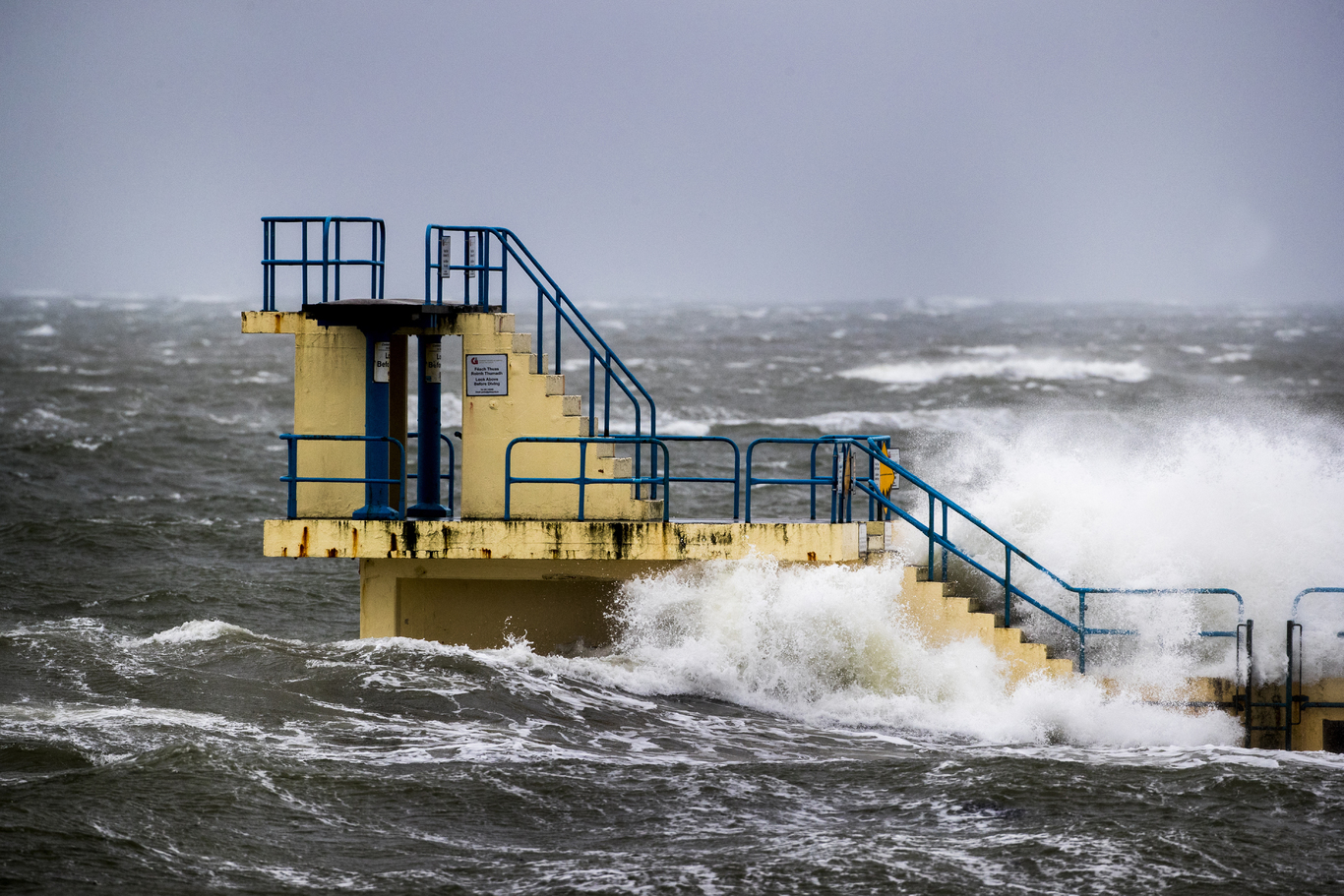Bracing for the storm: how Irish businesses can be ready for increasingly extreme weather
You can’t control the wind or the rain, but you can at least be prepared.
WHILE STORM CIARA may have passed with Storm Denis following on its coattails, the impact of extreme weather events on business performance, both positively and negatively, should not be underestimated.
With the news that Ireland can expect plunging temperatures and extreme storms to become a more regular occurrence, answering the question of how companies can best prepare and respond should be a priority for business owners.
Production, supply, demand and operations can all be impacted by extreme weather. Abnormal weather patterns offer a unique form of disruption for companies and, in recent years, organisations in the fields of energy, water, telecoms, transport, retail, leisure and agriculture have all been affected in a variety of ways.
Small businesses are the most vulnerable because there is no simple way of telling how long weather-related disruption can last. Prolonged periods of disruption can lead to financial distress, triggering shortfalls in sales, store closures and even job cuts.
Thanks to climate change, the frequency and intensity of abnormal weather patterns have increased too and a shift to warmer temperatures will only worsen the threat.
Financial losses caused by adverse weather that ten years ago didn’t seem material enough for companies to concern themselves, are now examined and managed by weather-based financial instruments that seek to cover the risk to which businesses are exposed.
As recently as October 2019, the Irish government was forced to send out an orange weather warning in preparation for ex-hurricane Lorenzo, proof that businesses must have an effective back-up plan in place to limit the negative impacts of a disaster.
Failure to plan
The European Economic Area records that, over the period 1980 – 2017, total reported economic losses caused by weather and climate-related extremes in the member countries amounted to approximately €453 billion.
In 2018, Sinn Féin proposed a bill to make it compulsory for employers to close its place of business during a red alert weather warning. It stated that if a place of work is subject to a red weather warning, an employer would be required to “close such place and make reasonable measures to inform all employees to stay away from it for the duration of that warning.”
Organisations must review assumptions about the risks they face because of their direct influence on both organisational resilience and the bottom line.
The key to deciding how to move forward is making an accurate assessment of the level of risk a business is willing to accept, and taking a multi-tiered approach to assess and plan for a range of threats.
To best address extreme weather events, businesses need to evaluate how to react to a disruption of this nature. Organisations should look at completing an assessment of business impact, risk and overall resilience.
It is also important to ensure that a company’s ICT system is robust yet agile – businesses must ensure a service continuity plan is in place, and that it extends to disaster recovery scenarios.
Operations should be prepared for action accordingly. This should consider business continuity processes, training and awareness processes for staff at all levels of the business. Develop crisis leadership competencies within the executive team, which can include training, executive coaching and coached crisis scenarios.
Businesses should also foster a mutually supportive network of suppliers and stakeholders, examine market-wide crisis exercises and identify best practice.
A growing trend
Environmental risks have grown in prominence over the last decade and we can expect this trend to continue.
Findings from the World Economic Forum’s 2019 Global Risks Report send a clear message to companies, with extreme weather events, natural disasters and climate change all highlighted as top concerns.
As tempting as it might be to think “that’ll never happen to us”, understanding and investing in a business continuity plan, and business interruption insurance can greatly support recovery.
The latter can be an invaluable safeguard, allowing for the reimbursement of ongoing expenses and lost gross profit while a permanent business location is being repaired.
Disasters can happen when least expected. Companies might not be able to prevent the storm, but they can take steps to handle the situation and keep operations up and running with minimal disruption.
This is what the most resilient companies do, and it’s why they’ve stayed afloat while others have not.
Noel O’Grady is the sales director in Ireland for Sungard Availability Services
Get our Daily Briefing with the morning’s most important headlines for innovative Irish businesses.






